Have you ever wondered about the history of the cat? Throughout the ages, cats have been both adored and despised by different groups of people. Today, cats are just as popular as dogs when it comes to common household pets. But where did the cat originally come from? And how did it make its way into our hearts and into our homes?
Although bones found in a gravesite in Cyprus dating around 7500 B.C. suggest some type of domestication may have occurred earlier with the wildcat species, it is believed by many that actual domestication of cats began as around 4000 B.C. in ancient Egypt in Valley of Nile. Egyptians found the cat to be a useful creature for protecting its stored grains from the rats, and cats found that rats were to be found where humans were. It was a beneficial relationship for both sides.
Although Egyptians possessed many animals, the cat was the only one allowed to roam as they pleased, but they were also kept indoors when guarding the valuable grain. Egyptians began to view cats as sacred animals, as the symbol of the Goddess Bastet was portrayed with a cat's head. The cat received a highly regarded position in society, and it became a crime to harm or kill a cat. Killing a cat could result in death or a stone beating. The actual death of a cat was an extremely sad event for the family, and many cats were embalmed, put in coffins, and even mummified.
Eventually domestication of cats spread. Nile bargemen kept cats on their ships to control the rodent population, and sometimes when unloading their goods, a cat would wander off the boat establishing new territories for homes. In the Roman Empire cats were used to keep the rat and mice population in check, but were also kept as a pets. Cats became a favorite house pet because of their unique features. And Islamic countries held the cat in great esteem, as the Egyptians did.
The Middle Ages brought about a change of opinion of the feline. Cats were viewed to have magical powers and were thought to be associated with the devil. Their owners were considered witches. Pope Gregory IX launched a war on cats, and even went so far as to label the cat a "diabolical creature." Cats were put to death and sometimes burnt with their owners. This almost wiped out the domestic cat population in Europe, and is believed to have been the reason for the bubonic plague, since the rodent population was able to increase. To this day, superstitions still bestow an ominous power on the cat, as we often think it bad luck to have a black cat cross our paths. It is also associated with Halloween.
The 1800's brought another change in thinking, and the cat once again became the beloved pets they once were. Domestication of cats in the United States did not begin until the European settlers arrived. They were brought over on boats from overseas to control rodent population in the new settlements. The rest is history. Cats now safely inhabit homes across the world, purring with happiness.

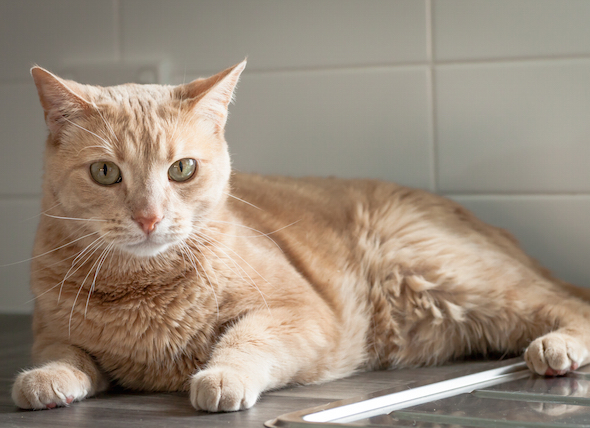 How to Keep Your Cat Off the Counter
By Rachel Semigran
Despite cats&
How to Keep Your Cat Off the Counter
By Rachel Semigran
Despite cats&
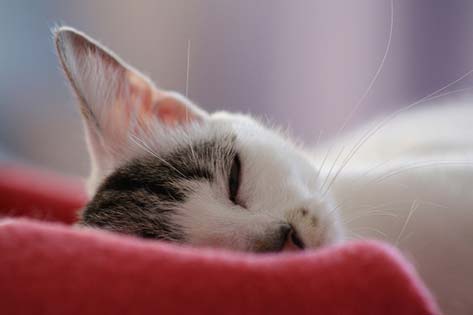 Why Do Cats Sleep So Much?
Cats sleep an average of fifte
Why Do Cats Sleep So Much?
Cats sleep an average of fifte
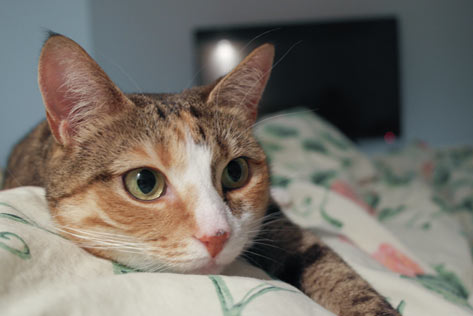 Arthritis in Cats: Recognizing the Signs and Treating the Disease
By Ashley Gallagher, DVM
A
Arthritis in Cats: Recognizing the Signs and Treating the Disease
By Ashley Gallagher, DVM
A
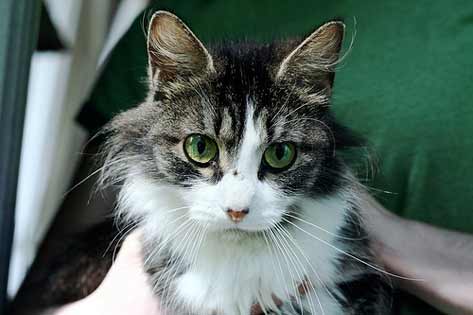 A Cleaner, Greener Home for You and Your Cat
Breathe Easier Knowing Your Home is Toxin Free
&n
A Cleaner, Greener Home for You and Your Cat
Breathe Easier Knowing Your Home is Toxin Free
&n
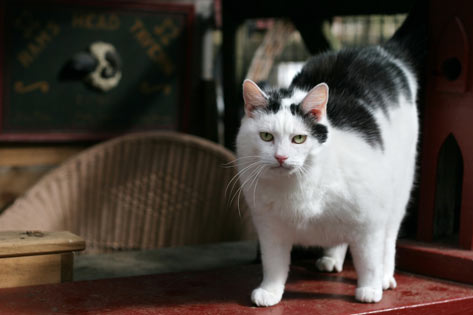 Why Your Cat's Weight Really Matters
Weight Isn’t Just a Cosmeti
Why Your Cat's Weight Really Matters
Weight Isn’t Just a Cosmeti